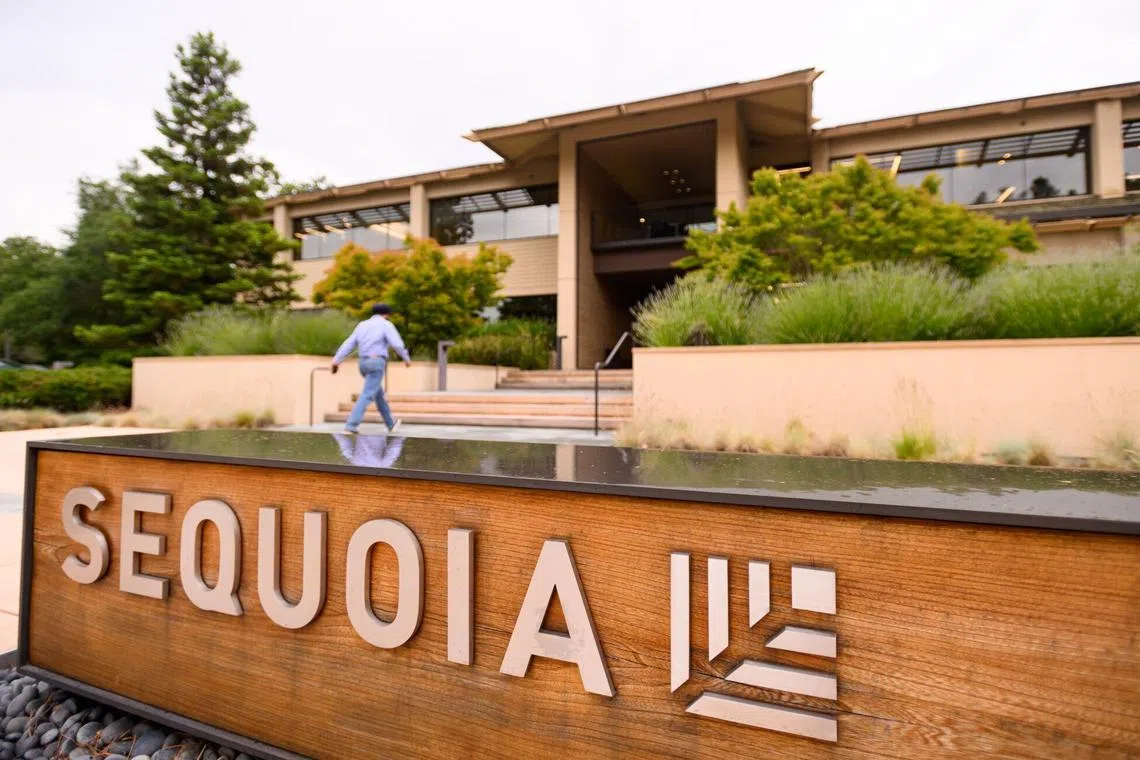Venture capital giant Sequoia to split, sending warning to companies doing US-China business
Sign up now: Get ST's newsletters delivered to your inbox

Sequoia Capital announced that its India, China and US units – which share investors and some returns – would officially become separate entities.
PHOTO: BLOOMBERG
San Francisco - Sequoia Capital plans to split itself into three separate regional firms in a major shift at one of the world’s foremost venture capital firms. It also shows the impact of rising political tensions between the United States and China on an institution that has made huge profits in both.
Sequoia on Tuesday announced that its India, China and US units – which share investors and some returns – would officially become separate entities.
“It has become increasingly complex to run a decentralised global investment business,” Sequoia leaders said in a statement, citing the pitfalls of a centralised back office.
Left unsaid is that the move is a concession to increasing pressure in the US to distance Silicon Valley from China.
Sequoia’s China investments have been the subject of criticism inside the normally clubby world of technology investing, and the firm is facing a looming executive order from the Biden White House that could curtail US investments into foreign entities.
The measure targets the practices that helped Sequoia generate billions in profits overseas for more than 15 years, despite recent market tumult.
Sequoia has long defended its Chinese investments, both in public and – increasingly – in private.
In recent years the firm has built up a quiet but powerful presence in DC, and just a few weeks ago argued to Capitol Hill staffers behind closed doors that its US and China operations are wholly separate, according to people familiar with the efforts.
Now, finally, the entities will formally part ways, a process that Sequoia said will be functionally complete by the end of the year, with names and branding updated by the end of next March.
The move is seen by many in Washington as a win for the Biden administration. Yet it will not unwind a history of lucrative investments at the firm, and many of the institutions that back Sequoia – including investors like the University of Michigan and the University of California – still have money invested in Sequoia China, as do some US partners.
While this week’s dramatic separation may insulate Sequoia from pending regulation, it is also a signal that ties to China are a growing liability in Silicon Valley.
While the split is a shift for Sequoia, the change comes at a time when start-ups in China have less allure than they used to.
Since the boom years when Sequoia first started investing in the country, Beijing has cracked down on high-flying tech companies.
At the same time, US tech leaders including billionaire Peter Thiel have ratcheted up their criticism of Sequoia and other firms for helping Chinese companies in sectors like artificial intelligence, thought to be a threat to US national security.
In a statement on the split, a Sequoia spokesman said, “There was no single catalyst or event that led to the decision.”
The unwinding will result in two new entities – HongShan, formerly Sequoia China, and Peak XV Partners in India, a reference to a name for Mount Everest.
As the separation happens over the next few months, US policymakers are not likely to stop pushing for more restrictions on US tech ties to China, even beyond the pending executive order.
“There’s support to do more” in Congress, said Mr Dmitri Alperovitch, chairman of Silverado Policy Accelerator, a Washington-based bipartisan think-tank.
“That’s not the end of this issue.” BLOOMBERG


